
Coffee feels like magic in a cup. Most mornings don't even start until that first sip hits. But here's the catch—while coffee helps you stay awake, it might also be slowly damaging your teeth. Ever wondered how caffeine causes cavities? It's not just about sugar. It's about what caffeine actually does inside your mouth. And if you ask the best dentist in Nagpur, they'll confirm—caffeine can quietly mess with your oral health if you're not careful. Let's talk about it in plain words. 7 Ways Caffeine Causes Cavities in Teeth 1. Caffeine Dries Out Your Mouth You need saliva more than you think. It's like your body's built-in cleaning system. It washes away food bits, balances acids, and keeps bacteria in check. But caffeine reduces saliva. That's why your mouth feels dry after coffee. Dry mouth = bacteria hanging around longer = higher chance of cavities. Simple math. 2. Coffee and Tea Stain Enamel Yes, coffee stains are annoying. But it's not just about looks. Stains roughen the enamel, making it easier for bacteria to stick. Once they stick, cavities become more likely. So it's not only about having yellow teeth—it's about more vulnerable teeth. 3. Sugar in Coffee Drinks Be honest—how often do you drink plain black coffee? Most people add sugar, flavored syrup, or sweet creamers. That sugar becomes food for cavity-causing bacteria. Black coffee = lower risk. Caramel latte with extra sugar = cavity starter pack. That's one of the clearest examples of how caffeine causes cavities. 4. Acid Weakens Enamel Coffee and tea are acidic. Energy drinks and sodas? Even worse. Acid softens enamel, and once enamel is weak, bacteria can do their job faster. One cup is okay. But if you sip coffee all day, your teeth are basically under constant acid attack. 5. Sipping All Day Is the Real Problem How you drink matters more than how much. If you finish your coffee in one go and rinse with water, the damage is smaller. If you sip a cup from 9 to 5, your teeth remain exposed to sugar and acid for hours. That's one of the sneaky ways caffeine causes cavities. It's not always the number of cups—it's the timing. 6. Teeth Grinding and Caffeine Here's something most people don't connect. Caffeine can make you anxious or restless, and that sometimes shows up as teeth grinding. Grinding wears down enamel, creating cracks that allow bacteria to slip in. And enamel doesn't grow back. Ask the best dentist in Nagpur, and they'll probably tell you—they see this a lot with heavy coffee drinkers. 7. Bad Sleep, Weak Teeth Too much caffeine messes with sleep. Poor sleep weakens your body, including your immune system. When your immune system is low, bacteria grow faster. That includes the ones in your mouth. So caffeine isn't just hurting your enamel—it's also messing with your body's natural defense. How Much Coffee Is Too Much? Okay, so what's the safe limit? Experts usually say under 400 mg of caffeine a day. That's: 1. About 3–4 cups of coffee 2. Or 7–8 cups of tea 3. Or maybe 2 cans of energy drink But honestly, your teeth don't care about numbers. What matters is how you drink. 1. 3 cups finished quickly with water? Better. 2. 1 big cup slowly sipped all day? Worse. See the difference? Easy Tips to Save Your Teeth You don't need to quit coffee. Let's be real, that's not happening. But you can drink smarter: 1. Don't sip coffee all day. 2. Rinse your mouth with water after drinking. 3. Use a straw for iced coffee. 4. Cut back on sugar and flavored creamers. 5. Chew sugar-free gum to boost saliva. 6. Book regular checkups with your dentist. Small changes, big results. FAQs on How Caffeine Causes Cavities 1. Does caffeine itself cause cavities? Not exactly. It's the dry mouth, sugar, and acid that come with caffeine drinks. 2. Is black coffee safer? Yes, but it's still acidic and can stain teeth. Water rinse helps a lot. 3. Does tea cause cavities, too? Yes, especially sweetened tea. Even unsweetened black tea can stain. 4. How often should I see a dentist if I drink coffee every day? At least twice a year. The best dentist in Nagpur may suggest more visits if you're a heavy coffee drinker. 5. Is decaf better for teeth? A little—it doesn't dry your mouth as much. But it's still acidic, so the risk is there. Caffeine is a daily habit for most of us. And that's fine—you don't need to give it up completely. But now that you know how caffeine causes cavities, you can make small changes to protect your teeth. Think about how often you sip, how much sugar you add, and whether you rinse after. And if your teeth already feel sensitive or stained, just book an appointment with the best dentist in Nagpur. Your teeth aren't asking you to quit coffee. They're just asking for a little care.
You may also like
More from this category.

The Power of Tandoor Ovens in Modern Commercial Kitchens
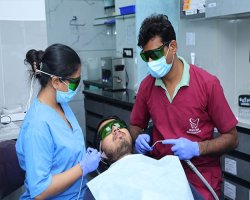
Tooth Extraction in West Delhi – Expert Oral Surgery Care | DentoHub

Vinny Pizza: A Slice of Authentic Flavor with a Modern Twist

County Pizza: Where Local Flavor Meets Legendary Taste
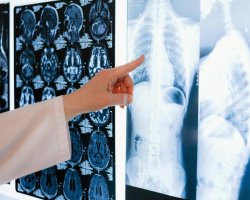
NextGen Diagnostic Imaging
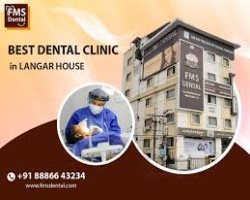
Get the Perfect Smile with the Best Orthodontist in Langar House at FMS Dental
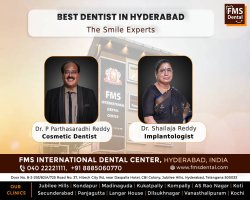
Best Dentist in Hyderabad – Patient-Focused Care at FMS Dental

Why Selenium Is the Most Popular Tool for Web Automation?
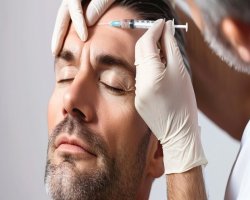
Anti-Aging Treatments: Modern Solutions for Youthful, Healthy-Looking Skin

